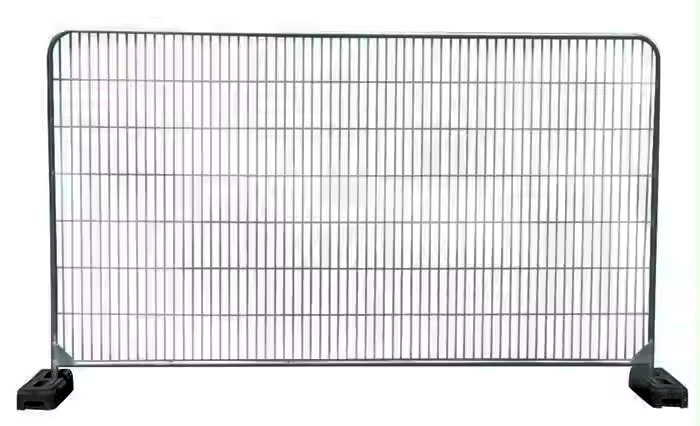-
Email:zhao@hyliec.cn
-
Tel:+86 311 85273988
-
WhatsAPP:8613931128750
-
 Afrikaans
Afrikaans -
 Albanian
Albanian -
 Amharic
Amharic -
 Arabic
Arabic -
 Armenian
Armenian -
 Azerbaijani
Azerbaijani -
 Basque
Basque -
 Belarusian
Belarusian -
 Bengali
Bengali -
 Bosnian
Bosnian -
 Bulgarian
Bulgarian -
 Catalan
Catalan -
 Cebuano
Cebuano -
 Corsican
Corsican -
 Croatian
Croatian -
 Czech
Czech -
 Danish
Danish -
 Dutch
Dutch -
 English
English -
 Esperanto
Esperanto -
 Estonian
Estonian -
 Finnish
Finnish -
 French
French -
 Frisian
Frisian -
 Galician
Galician -
 Georgian
Georgian -
 German
German -
 Greek
Greek -
 Gujarati
Gujarati -
 Haitian Creole
Haitian Creole -
 hausa
hausa -
 hawaiian
hawaiian -
 Hebrew
Hebrew -
 Hindi
Hindi -
 Miao
Miao -
 Hungarian
Hungarian -
 Icelandic
Icelandic -
 igbo
igbo -
 Indonesian
Indonesian -
 irish
irish -
 Italian
Italian -
 Japanese
Japanese -
 Javanese
Javanese -
 Kannada
Kannada -
 kazakh
kazakh -
 Khmer
Khmer -
 Rwandese
Rwandese -
 Korean
Korean -
 Kurdish
Kurdish -
 Kyrgyz
Kyrgyz -
 Lao
Lao -
 Latin
Latin -
 Latvian
Latvian -
 Lithuanian
Lithuanian -
 Luxembourgish
Luxembourgish -
 Macedonian
Macedonian -
 Malgashi
Malgashi -
 Malay
Malay -
 Malayalam
Malayalam -
 Maltese
Maltese -
 Maori
Maori -
 Marathi
Marathi -
 Mongolian
Mongolian -
 Myanmar
Myanmar -
 Nepali
Nepali -
 Norwegian
Norwegian -
 Norwegian
Norwegian -
 Occitan
Occitan -
 Pashto
Pashto -
 Persian
Persian -
 Polish
Polish -
 Portuguese
Portuguese -
 Punjabi
Punjabi -
 Romanian
Romanian -
 Russian
Russian -
 Samoan
Samoan -
 Scottish Gaelic
Scottish Gaelic -
 Serbian
Serbian -
 Sesotho
Sesotho -
 Shona
Shona -
 Sindhi
Sindhi -
 Sinhala
Sinhala -
 Slovak
Slovak -
 Slovenian
Slovenian -
 Somali
Somali -
 Spanish
Spanish -
 Sundanese
Sundanese -
 Swahili
Swahili -
 Swedish
Swedish -
 Tagalog
Tagalog -
 Tajik
Tajik -
 Tamil
Tamil -
 Tatar
Tatar -
 Telugu
Telugu -
 Thai
Thai -
 Turkish
Turkish -
 Turkmen
Turkmen -
 Ukrainian
Ukrainian -
 Urdu
Urdu -
 Uighur
Uighur -
 Uzbek
Uzbek -
 Vietnamese
Vietnamese -
 Welsh
Welsh -
 Bantu
Bantu -
 Yiddish
Yiddish -
 Yoruba
Yoruba -
 Zulu
Zulu
Understanding the Expenses Involved in Field Fence Installation for Your Property
The Cost of Field Fence Installation A Comprehensive Overview
Field fencing is a crucial aspect of agricultural and rural properties, serving not only as a boundary marker but also as a means to contain livestock and protect crops. However, before undertaking a field fence installation project, it’s important to understand the various costs involved to ensure a budget-friendly approach.
Factors Affecting Cost
1. Materials The choice of materials significantly influences the overall cost of field fence installation. Common materials include barbed wire, woven wire, electric fencing, and wooden posts. Barbed wire is generally the most cost-effective option, while woven wire and electric fencing offer enhanced durability and security, albeit at a higher price.
2. Length of the Fence Naturally, the longer the fence, the more materials will be needed, which increases the total cost. It's essential to measure the area accurately to avoid overspending and underestimating the materials required.
3. Terrain and Soil Conditions The type of terrain can greatly affect installation costs. Rocky or uneven land may require additional labor and tools to install posts firmly, while flat and soft terrains often allow for a quicker, more straightforward installation process.
4. Labor Costs If you're not planning to install the fence yourself, hiring a professional can add to your costs. Labor prices can vary widely depending on the region and the complexity of the installation. It's advisable to obtain multiple quotes from local contractors to find a competitive price.
5. Permitting and Regulations Depending on your location, there may be local regulations or permits required for installing a fence. It’s important to check with local authorities to ensure compliance and avoid potential fines, which can add unexpected expenses to your project.
field fence installation cost

Estimated Costs
While specific costs can vary significantly based on the factors mentioned above, some general estimates can provide a framework for budgeting
- Barbed Wire Fencing Generally ranges from $1 to $5 per linear foot, depending on the quality of the wire and posts. - Woven Wire Fencing This tends to be more expensive, averaging between $2 to $8 per linear foot. - Electric Fencing Starting costs can be around $1 to $3 per foot, but additional components like energizers and insulators can increase the overall cost. - Labor Costs Depending on your location, labor for fence installation can range from $20 to $50 per hour. A typical installation might take several hours to a couple of days, depending on the complexities involved.
Additional Considerations
Beyond basic installation costs, it’s wise to consider ongoing maintenance. Fences may require occasional repairs due to weather conditions or wildlife damage. Setting aside a small annual budget for maintenance can help prevent larger expenses down the line. Additionally, investing in high-quality materials may lead to lower long-term costs due to reduced need for repairs and replacements.
Conclusion
The cost of installing a field fence is influenced by several variables, from materials and labor to terrain and regulations. By carefully assessing these factors and planning appropriately, property owners can ensure their fencing project is both economically feasible and effective in serving its intended purpose. Whether you choose to DIY or hire professionals, understanding these costs will help you make informed decisions, allowing for a successful and budget-conscious field fence installation.
-
Garden Gates: Blending Functionality and Aesthetic Appeal
NewsAug.11,2025
-
Houseplant Supports and Related Products: Essential Aids for Plant Health
NewsAug.11,2025
-
Wire Fencing Rolls: Secure Your Space with Style
NewsJul.17,2025
-
Strong and Durable Round Fence Posts for Every Need
NewsJul.17,2025
-
Square Metal Posts: Strength and Style for Your Outdoor Space
NewsJul.17,2025
-
Revolutionize Your Garden with Innovative Garden Posts
NewsJul.17,2025
